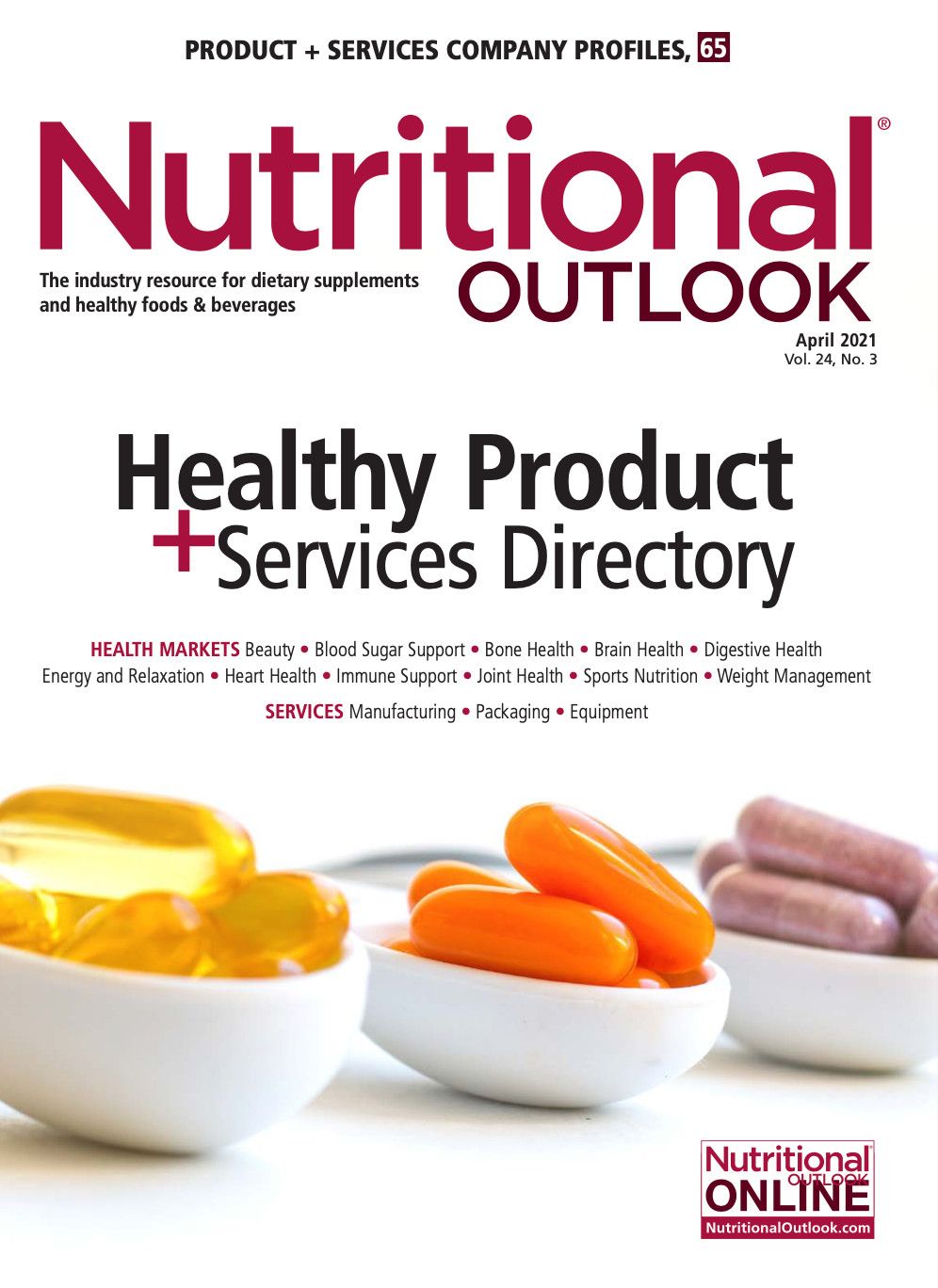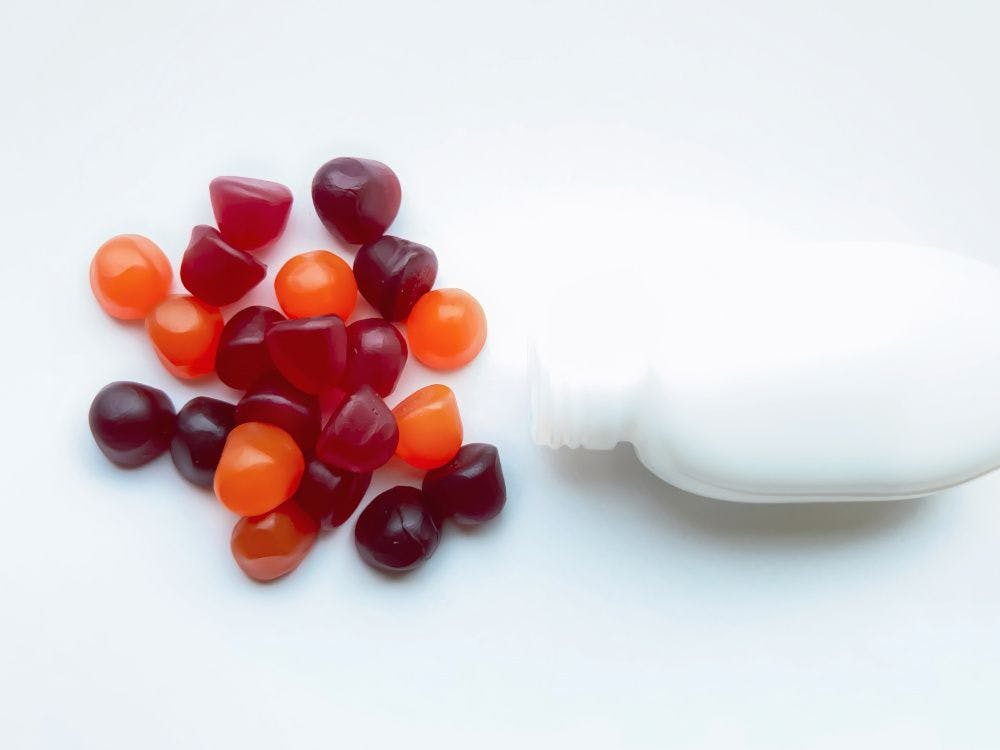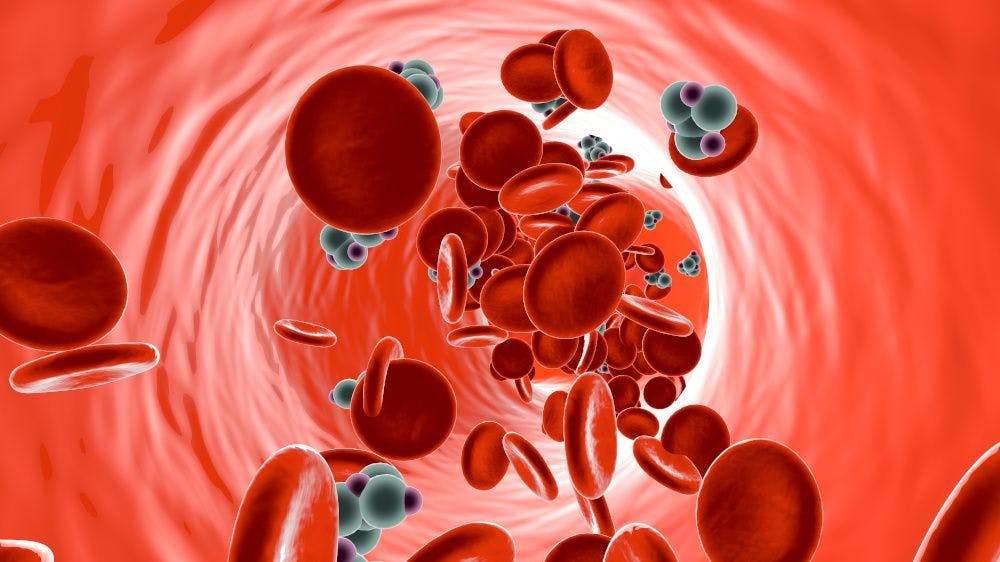Do consumers get how immune health supplements work? Can they cut through the “immune washing”?
Can supplement companies do a better job of teaching customers about what to expect from immune-health supplements?
Photo © Aleksandr - Stock.adobe.com

A lot has been said about immune health supplements in the past year. Many companies today are spouting the pros of supplement products and ingredients for immune support, and customers eager to stay healthy especially during pandemic times are buying. Immune health dietary supplement sales today are astronomical. Nutritional Outlook’s recent January/February 2021 issue covered many of the ingredients now benefiting from growing global interest in ingredients that provide immune support.
While some consumers correctly understand that no supplement in the immune health aisle will treat or prevent a disease like COVID-19, others, unfortunately, don’t. FDA has been quicker than usual to correct misconceptions by issuing a swath of warning letters to companies of all kinds illegally marketing their products as COVID-19 cures.
But that still leaves a high percentage of consumers who in general don’t understand how immune health supplements work and what to reasonably expect from them. And here, companies within the dietary supplement industry can do a better job.
When it comes to “immune washing” supplements (overhyping the immune health potential of products and ingredients), marketing can be purposefully misleading—for instance, knowingly claiming that a product or ingredient can support immune health when in fact there isn’t research showing a strong direct link to immunity, or claiming a product to be good for immune support when there isn’t actually a sufficient dose of ingredients in a product to be effective.
One can understand the desire of a company to slap the additional “immunity” claim on a product if it contains even a small amount of an ingredient linked loosely to immune support. But is doing so right? Probably not.
Ahead, we talk to two experts: one, a leading company in the immune supplements space, and the other a supplement expert who has stood on the side of consumers and understands how damaging misleading marketing can be to the end user. We asked what companies in this space can do better to not only protect consumers but also protect themselves—the entire immune health industry—in the long-term.
How Nutraceutical Ingredients Can Help
David J. Foreman, RPh, ND, known in the dietary supplement industry as The Herbal Pharmacist, spent years as the owner of a natural pharmacy working directly with consumers purchasing natural health products. He gets why consumers are so eager to turn to supplements during COVID times, but he also grasps what they don’t understand about immune health supplements in general.
“I would say that the majority of consumers have no idea what to take, nor how much and how long, to achieve the results they want,” he says. “They trust marketing and packaging, which is dangerous.” In that respect, supplement users are really no different than consumers in other markets where customers primarily buy based on the seller’s word.
Foreman outlines the basic tenets of immune supplements. “Boiling it down: Supplements either stimulate the immune system to act quickly (i.e., produce more white blood cells), or they support the immune system (i.e., provide direct or indirect support by many possible mechanisms)…Additionally, there are supplements which support the downregulation of the immune response. We see this with regards to autoimmune conditions.”
Most consumers don’t differentiate between immunity stimulants versus ingredients that take a longer time to work. They don’t understand which ingredients support the immune system directly and which do so indirectly. In short, they don’t understand that different immune health supplements should be used in different ways.
“Let’s face it: the immune system is a complex orchestra,” says Foreman. “Stimulant supplements should only be taken at the first onset of feeling sick and only be used for a few weeks. Stimulating the immune system over extended periods of time can be harmful. Support supplements usually take a few days to begin working. They are what I like to call the ‘preventative’ way of avoiding an immune challenge such as bacterial, viral, and even cancer.”
Diving deeper, we asked Foreman to lay out how the immune system works. He touched on some of its key components.
Lymphocytes are white blood cells. Their production is key to immune system function, Foreman explains. “Lymphocytes are part of our immune defense and act to recognize antigens, produce antibodies, and destroy harmful cells.”
He continues: “There are three main types [of lymphocytes], known as T cells, B cells, and natural killer (NK) cells…T cells get their name because they are developed in the thymus gland and are essential in immunity because they recognize antigens and are able to bind to them. B cells get their name because they mature in the bone marrow. They recognize and attach to specific antigens, too. Natural killer cells are known to be cytotoxic. This means they have the ability to kill other cells. NK cells are an important part of the immune system because they can recognize virally infected cells, as well as some types of tumor cells, and kill them before they cause harm.”
Helper T cells are extremely important. Foreman explains: “Helper T cells are arguably the most critical cells in adaptive immunity, as they are required for almost all adaptive immune responses. They not only help activate B cells to secrete antibodies and macrophages to destroy ingested microbes, but they also help activate cytotoxic T cells to kill infected target cells.”1
Then, there are cytokines. “Cytokines interact with cells of the immune system to regulate the body’s response to disease and infection,” he explains. “Some cytokines stimulate the immune system, and others slow it down. Immune cells use cytokines as messengers to other immune cells. Examples of cytokines are: chemokines, interferons, interleukins, lymphokines, and tumor necrosis factor.”
Studies show that certain classes of ingredients impact the immune system, whether it be directly or indirectly. Foreman calls this the “immunopotentiation” factor. “Immunopotentiation can be defined as a process that either directly enhances one or more specific immune functions, or that modifies one or more components of the complex immunoregulatory network to achieve its effects through indirect mechanisms,” he says.
He continues: “Immune-modulating substances are a type of immunotherapy that enhances the body’s immune response. This can be either by stimulating or suppressing the immune system and may help the body fight abnormal cell production, infection, or other diseases.”
Antioxidants, for instance, may play a role. Says Foreman: “Recent clinical trials have found that antioxidant supplementation can significantly improve certain immune responses. Adequate amounts of neutralizing antioxidants are required to prevent damage to immune cells. An adequate intake of antioxidants is essential for an efficient function of the immune system and important for the effects on immune responses.”2 He briefly describes how some of the most common immune health ingredients work on the system.
Acute ingredients, like those below, stimulate the immune system short-term.
Vitamin C: “Acts by increasing lymphocyte activity, phagocyte function, leukocyte mobility, and antibody and interferon production3”
Echinacea: “Acts by activating neutrophils, macrophages, polymorphonuclear leukocytes (PMN), natural killer (NK) cells, TNF-α, interleukin-10 (IL-10), interleukin-1 (IL-1), and interleukin-6 (IL-6)4”
Elderberry: “Has several effects, including antiviral and immunomodulating effects, and inhibits the replication of several strains of influenza viruses A and B and inhibits H1N1 ‘swine’ flu5,6.It also increases production of inflammatory cytokines, such as interleukins and tumor necrosis factor7.”
Andrographis: “Has activity against avian influenza A and human influenza A H1N1 viruses8, and increases antibody activity and phagocytosis by macrophages9”
Zinc: “Is important for neutrophil, natural killer cell, and T lymphocyte function10. Mild zinc deficiency might adversely affect T cell functions11.”
Chronic ingredients, on the other hand, support the immune system through long-term use. Foreman describes some of the most common.
Medicinal Mushrooms: “Chaga, reishi, maitake, shiitake, cordyceps: These impact lymphocytes, macrophages, T cells, and natural killer (NK) cells.12”
1,3/1,6-Beta-Glucan: “Increase macrophage phagocytosis of tumor cells, increase the cytotoxicity of natural killer cells (NK), and stimulate the release of interleukin-1 (IL-1) and tumor necrosis factor (TNF)13”
Probiotics: “The beneficial impact of probiotics is by different mechanisms. These mechanisms include the probiotics’ capacity to increase the intestinal barrier function, to prevent pathogenic bacterial movement, and to modulate inflammation.14”
Black Seed Oil: “Antiviral activity has been extensively researched15. There are multiple mechanisms of action with regard to how the antiviral effect is realized. It was found to suppress viral load16.”
Vitamin D: “There are numerous published clinical studies confirming that low blood levels of vitamin D are associated with an increased risk of infections17. The National Institutes of Health warned that low vitamin D levels are associated with frequent colds and influenza18.”
Being Straightforward, Communicating Better
These ingredients are becoming more popular in supplements. But are they present in a dose efficacious for the immune support consumers are seeking?
“Can we insert a laughing face emoji here?” asks Art Rowe-Cerveny, vice president of marketing for PharmaCare U.S. (San Diego, CA), maker of leading immune supplement brand Sambucol. Supplements like the company’s Sambucol Black Elderberry Gummies saw skyrocketing demand in the past year.
He talks about the immune washing happening in both products and ingredients. “While, for the most part, most are being true to the brand or ingredient, there are still quite a few that are making excess claims or not using enough of the specific—or any—ingredient for the consumer to gain effect. Additionally, just the sheer proliferation of the term immune support is concerning, as we are seeing it on many items outside the normal spaces.”
That’s obviously bad for consumers, who may be misled into paying a lot for a product that doesn’t deliver the goods. “Consumers are blind and often deceived by marketing and false claims or expectations of what the product really does, how much to take, etc.,” Foreman says. “An example is Airborne—generally, just a whiff of ingredients not at a therapeutic dose. Or vitamin C powders delivering just 1000 mg of C. This will not do much to stimulate the immune system at just one packet per day. For C to really stimulate the immune system, we need to take that dose 10-12 times a day.”
Regarding the immune washing he witnessed in the past year, Foreman says, “I had a lot of concerns and was sad to see how shifty companies were to make a fast buck.”
“One of my favorite examples was an omega-3 product that contained less than 100 mg of vitamin C, claiming their product was great for immune health,” he recalls. “While omega-3 is good for immune health with regards to inflammation, it is not that great for helping with the pandemic concerns. Additionally, the dose of C is too low to do much of anything for immune health. One company told me they relabeled their product to say ‘immune health’ instead of ‘skin health’ because it had vitamin D in it. Crazy.”
Immune washing is also bad for responsible companies selling products in the immune health market, Foreman and Rowe-Cerveny both point out.
“We are certainly concerned and believe the industry should be concerned, as the consumer will vote with their wallet,” says Rowe-Cerveny. “The simple fact is if a consumer new to the category takes a product they find to be substandard or does not have the perceived effect—or, worse, fails in their mind—then they are lost to the category forever. And given the pace of growth in the category currently, this will mean losing a large slice of the consumer pie.”
Foreman agrees, stating, “Many people still think that natural health supplements are voodoo.” Products that don’t work as sold certainly won’t correct that impression.
Consumers could stand to be more informed about immune supplements in general, Rowe-Cerveny agrees. “Unfortunately,” he says, “we believe that the vast majority of consumers do not have a good understanding of how immune health supplements work. While there is always the subset of the highly educated consumer, they are a small percentage. Especially given the fear around the pandemic, it is the case that most consumers are probably taking a shotgun approach to immune health supplementation, taking anything and everything they can.”
Are supplement companies responsible for teaching consumers about how supplements work? In some ways, yes—and one could argue they’d be doing it as much for the customer as for themselves. For instance, in clearly explaining how their products work, they can also distinguish what sets them above the competition.
So, can industry do better than it’s doing now? “Short and sweet: Yes, they can do better,” Foreman says. “They should do better, and it frustrates me every time I see misleading ads or labels, etc. Education is key. Communicate with articles, videos, images—whatever it takes!”
Rowe-Cerveny also advocates for “education, education, and more education”—and throws in the caution, “but in small doses.” He expands: “Given the change in media consumption and attention span, long-form articles or videos will not cut through to the modern consumer, sadly. So, breaking the elements down into the most easily communicated, yet valid, points, to be consumed in bite-size chunks, is imperative.”
As a pioneer in the elderberry market, PharmaCare U.S. spent years disseminating accurate information. “We have spent the past decade trying to build consumer awareness of black elderberry, working with key opinion leaders (KOLs) spanning the range from MDs to moms, using social media to call attention to specific pieces and uses,” he says.
He points out: “There is very little room on-pack, from a regulatory standpoint, so we have had to use all other touchpoints to try and get the benefits across.”
Ingredient suppliers should also refrain from making irresponsible claims. After all, suppliers bear responsibility for how they market their ingredients to supplement brands, who will then take those ingredients to the customer. Foreman says that oftentimes a supplier’s R&D staff might understand precisely how immune support ingredients work, but sales and marketing staff—the people selling the ingredients and their benefits—sometimes don’t.
As we reach this point in the seemingly never-ending pandemic, it’s a good time to reflect on our industry’s own behaviors. Immune health supplements are complex and should be marketed clearly. And, and is true for the entire supplements industry, Foreman says it’s important to remind customers that supplements are only a piece of the puzzle, instead of pretending that supplements are the sole answer.
“Immune supplements are not the only thing we should be doing to support our immune health,” Foreman reminds. “I always say, ‘There is no pill to cure your ill.’ It takes other lifestyle habits such as exercise, healthy diet, no sugar (it is bad for immune function), stress management, etc., in order to achieve the best results.”
References
- Alberts B et al. (2002). Helper T cells and lymphocyte activation. In Molecular Biology of the Cell. 4th edition. Garland Science.
- Hajian S. “Positive effect of antioxidants on immune system.” Immunopathologia Persa, vol. 1, no. 1 (2015): e02
- Smogorzewska EM et al. “T lymphocyte mobility: defects and effects of ascorbic acid, histamine and complexed IgG.” Clinical and Experimental Immunology, vol. 43, no. 1 (January 1981): 174-179
- Manayi A et al. “Echinacea purpurea: Pharmacology, phytochemistry and analysis methods.” Pharmacognosy Reviews, vol. 9, no. 17 (January-June 2015): 63–72
- Zakay-Rones Z et al. “Inhibition of several strains of influenza virus in vitro and reduction of symptoms by an elderberry extract (Sambucus nigra L.) during an outbreak of influenza B Panama.” Journal of Alternative and Complementary Medicine, vol. 1, no. 4 (Winter 1995): 361-369
- Roschek B et al. “Elderberry flavonoids bind to and prevent H1N1 infection in vitro.” Phytochemistry, vol. 70, no. 10 (July 2009): 1255-1261
- Barak V et al. “The effect of Sambucol, a black elderberry-based, natural product, on the production of human cytokines: I. Inflammatory cytokines.” European Cytokine Network, vol. 12, no. 2 (April-June 2001): 290-296
- Hu XY et al. “Andrographis paniculata (Chuan Xin Lián) for symptomatic relief of acute respiratory tract infections in adults and children: a systematic review and meta-analysis.” PLoS One. Published online August 4, 2017.
- Puri A et al. “Immunostimulant agents from Andrographis paniculata.” Journal of Natural Products, vol. 56, no. 7 (July 1993): 995-999
- Shankar AH et al. “Zinc and immune function: the biological basis of altered resistance to infection.” The American Journal of Clinical Nutrition, vol. 68, Suppl 2 (August 1998): 447S-463S
- Prasad AS. “Zinc and immunity.” Molecular and Cellular Biochemistry, vol. 188, no. 1-2 (November 1998): 63-69
- Guggenheim AG et al. “Immune modulation from five major mushrooms: application to integrative oncology.” Integrative Medicine (Encinitas, CA), vol. 13, no. 1 (February 2014): 32–44
- Stier H et al. “Immune-modulatory effects of dietary yeast beta-1,3/1,6-D-glucan.” Nutrition Journal. Published online April 28, 2014.
- Plaza-Díaz J et al. “Immune-mediated mechanisms of action of probiotics and synbiotics in treating pediatric intestinal diseases.” Nutrients. Published online January 5, 2018.
- Salem M. “Immunomodulatory and therapeutic properties of the Nigella sativa L. seed.” International Immunopharmacology, vol. 5, no. 13-14 (December 2005): 1749-1770
- Forouzanfar F et al. “Black cumin (Nigella sativa) and its constituent (thymoquinone): a review on antimicrobial effects.” Iranian Journal of Basic Medical Sciences, vol. 17, no. 12 (December 2014): 929-938
- Cannell JJ et al. “Epidemic influenza and vitamin D.” Epidemiology and Infection, vol. 134, no. 6 (December 2006): 1129-1140
- National Institutes of Health website. NIH Research Matters. “Low Vitamin D Levels Associated with Colds and Flu.” Published March 9, 2009.


























